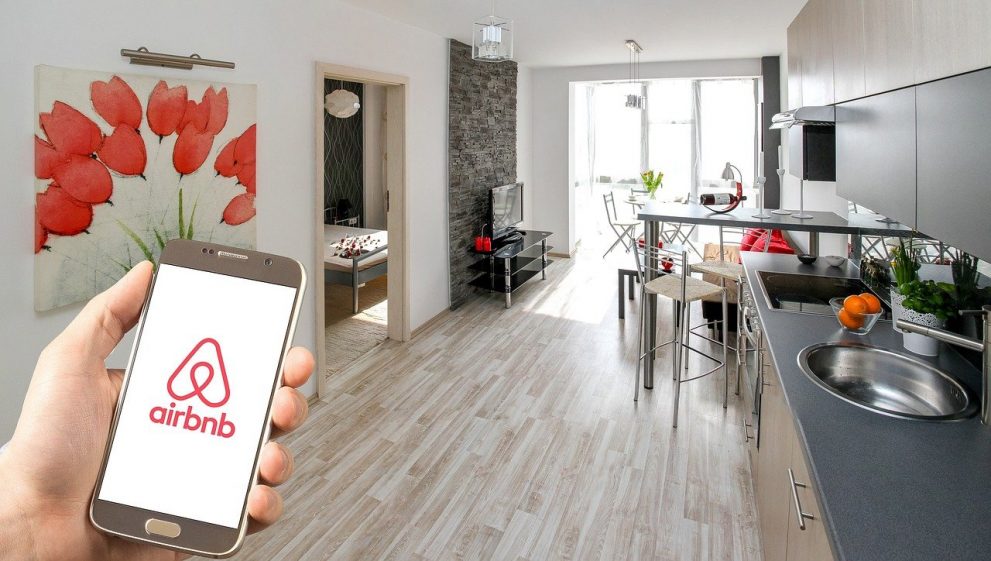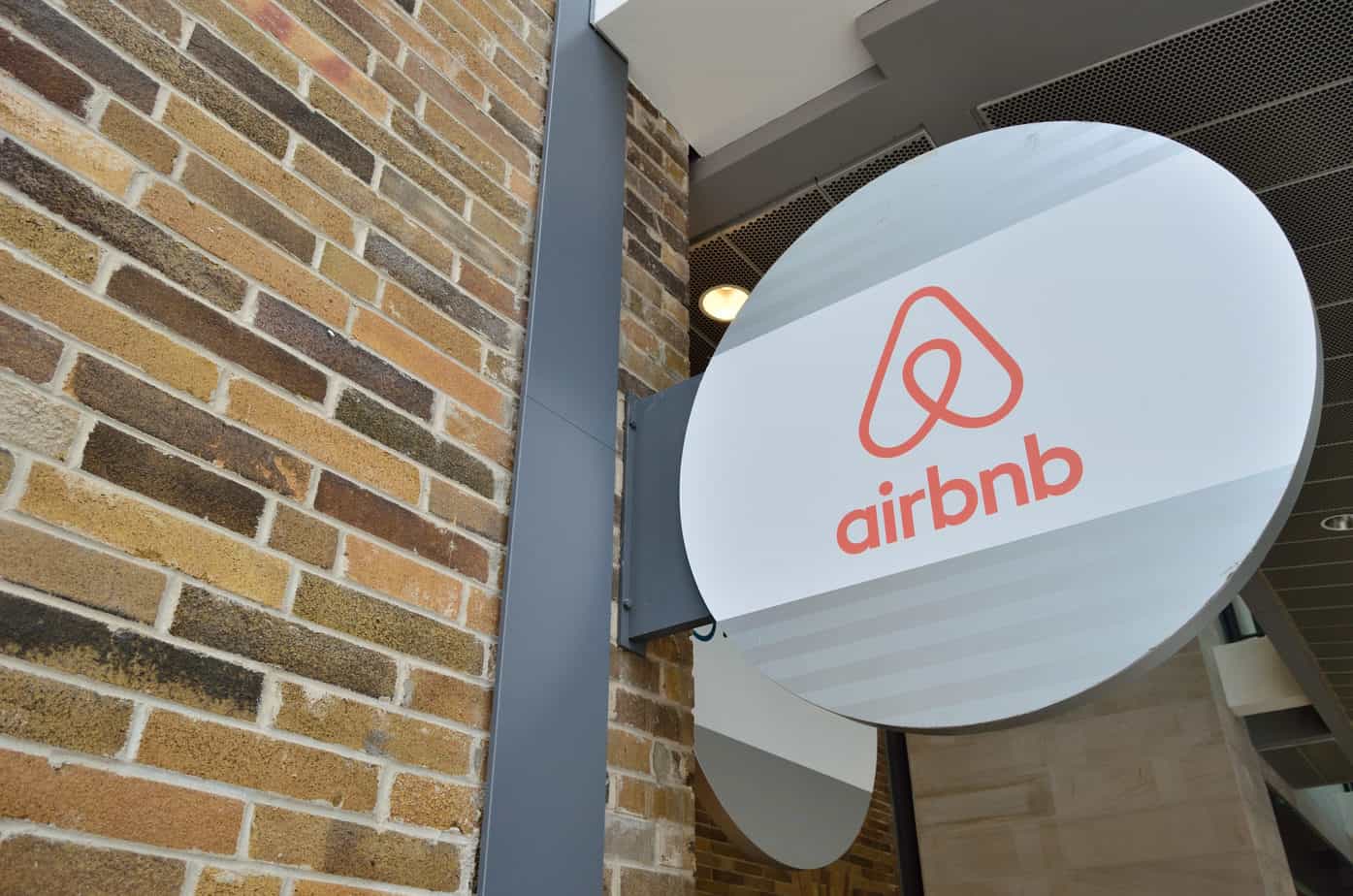
 The share price may continue to bounce around but Airbnb (Airbnb Stock Quote, Chart, News, Analysts, Financials NASDAQ:ABNB) is clearly a disruptor of the first rank. So says portfolio manager Shane Obata of Middlefield Capital.
The share price may continue to bounce around but Airbnb (Airbnb Stock Quote, Chart, News, Analysts, Financials NASDAQ:ABNB) is clearly a disruptor of the first rank. So says portfolio manager Shane Obata of Middlefield Capital.
The rocky road to recovery continues as governments attempt to rein in COVID-19 variants while pushing up vaccination rates. A post-pandemic economic recovery is surely around the corner, and with it should come a major rebound in travel, tourism and guest bookings at Airbnb’s around the globe.
Airbnb recently announced it would be extending a ban, first put in place last August, on parties at listed residences throughout summer 2021, a move to combat the spread of COVID-19 and a symbolic note of caution on the opening up of economies from the San Francisco-based company.
Airbnb will also be banning guests without a history of positive reviews from making one-night reservations in the United States on the July 4 weekend, to promote safe and responsible travel, the company said.
“We want to be really good community players all over the world,” said CEO Brian Chesky in a May 27 statement.
Online home-sharing booking platform Airbnb had its coming out party as a public company this past December when the stock opened at $146 per share on Day 1, over twice the price of its initial public offering the day before and giving the company a market cap of $87 billion.
The stock soon climbed above $210 before starting to slide in mid-February, now settling back into the $140-$150 range.
Investors are likely wondering where ABNB is headed now that it’s got about six months under its belt and the prospects for the return of travel and vacationing look better.
Obata says his company has yet to pull the trigger but the company’s innovation in the travel industry is an undisputed plus for investors to consider.
“We haven’t really done too much there yet, but it’s an interesting business,” said Obata, speaking to BNN Bloomberg on Thursday. “I compare it to Uber in the sense that we just had taxis before and then all of a sudden there was Uber, and it’s the same kind of thing with Airbnb — we just had hotels and now we have Airbnb,” said Obata, “I don’t think people are going back to the way things were, at least not entirely.”
“I have heard some differing opinions on how Airbnb is starting to really charge a lot more in the way of fees, thereby perhaps reducing its value proposition for customers, but as I mentioned I think it’s something that we’re well aware of and we think it has staying power. But we haven’t acted on anything at the moment,” he said.
Airbnb increased its first quarter revenue by five per cent year-over-year in a May release of its numbers, hitting $886.9 million for a topline compared to analysts’ consensus estimate at $714.4 million. The company said stronger results from its North American business and higher Average Daily Rates (ADR) compared to a year earlier, while 2020’s Q1 was also hit more heavily by amounts paid to customers due to the company’s extenuating circumstances policy.
The first quarter saw Airbnb suffer a net loss of $1.2 billion, a high number that included $377 million in repayment of term loans, a $292-million hit on a mark-to-market adjustment for warrants on a term loan, a $113-million impairment charge related to office space in San Francisco and $229 million in stock-based compensation. The Q1 adjusted EBITDA was a loss of $59 million compared to a loss of $334 million a year earlier.
“With the rollout of vaccines and the easing of some travel restrictions, our business significantly improved in Q1 2021 compared with the same period a year ago. People’s desire to travel, combined with our tightly managed expenses, drove a return to positive topline growth with materially improved Adjusted EBITDA,” the company said in a press release.
The company is seeing some changes in usage through the pandemic, including increased bookings for long-term stays. Airbnb said about 24 per cent of bookings in the first quarter were not for traditional travel but for stays of 28 days or more, up from 14 per cent a year earlier. About half of stays were for at least seven nights.
Airbnb has also recently reported a shift in bookings away from urban centres, as guests look for less travelled locations in rural and other settings.
“People aren’t going to the same places they used to,” said CEO Brian Chesky, speaking on CNBC on April 16. “We’re very much known as an urban brand but now a lot of our growth is in rural areas, in small towns and even in entry points at national parks.”
“I do think once the world reopens cities will come back, but it’s not going to be a shift back to cities. It’ll be a redistribution where people are going from travelling to 100 cities to truly travelling everywhere,” he said.
Obata says the Airbnb model is well-suited to succeed in the post-pandemic economy.
“It’s hard to envision people going back when they’ve experienced the convenience [of Airbnb],” Obata said. “I’ve used it before, it’s pretty seamless. You can do good research there and it’s good for communication and it’s convenient and there’s still a good value proposition for customers.”
Leave a Reply
You must be logged in to post a comment.




 Share
Share Tweet
Tweet Share
Share




Comment